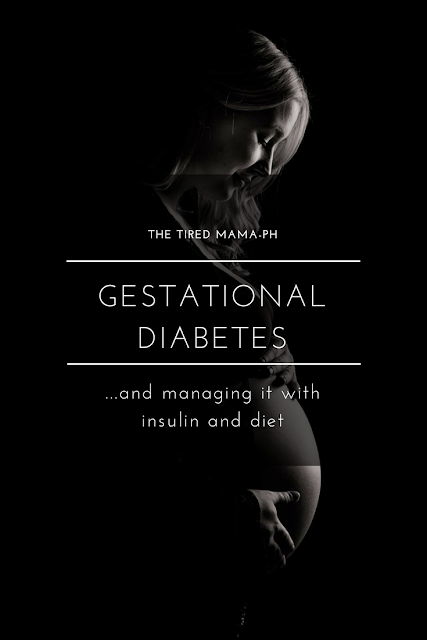Gestational Diabetes and Managing It With Insulin and Diet
I was diagnosed with gestational diabetes and managed through insulin and diet. It yielded positive results for me and my baby.
I was pregnant twice within 2 years. My first pregnancy lasted 27 weeks. I gave birth prematurely and sadly, she passed away 30 hours after. Six months after, as my partner was cooking dinner, I felt rather sickened from the smell. As I was telling him that the smell of his cooking was awful, it dawned on me that maybe I was conceiving. Making a quick calculation in my head, I made the assumption that I may be pregnant again. I told my partner and we ran out to get a pregnancy test for the morning. Actually, my partner woke me up at 5 am. Positive. We were ecstatic!
This time around, we took every precaution. My partner wanted me to take it easy. No running about, no stressing. He'd get me what I wanted to eat and never complain even if it was hard to get. Unfortunately, after my first pregnancy, I was not able to go back to my pre-pregnancy weight which was 20lbs lighter. So, I was already big at the start of my 2nd pregnancy and with less activity, I was gaining weight quickly. My obstetrician would always voice her concern about my weight gain each prenatal visit. She would always remind me to eat for one..not for two. To stay away from sweets. But, she also understood why I was gaining weight- my age and less physical activity.
As my pregnancy progressed, nearing the end of the 2nd trimester, my OB told me that she would have to place stricter thresholds for my Oral Glucose Tolerance Test. I was not diagnosed with Gestational Diabetes Mellitus (GDM) with my first pregnancy but, with this pregnancy I was nervous. My OB said that she had to do this because I am considered high risk pointing at my obvious weight gain and that my baby through ultrasound was considered to be larger than gestational age (LGA). If my results show even 1 abnormal result, she'd refer me to a diabetician. I told her that I'd do whatever it takes for my baby.
Of course, I did my research because my OB was so concerned and that meant I should be even more concerned. First of all, what is Gestational Diabetes Mellitus (GDM)? It is a type of diabetes that develops during pregnancy and develops in pregnant women who before becoming pregnant did not have diabetes. This is due to hormonal changes during pregnancy and usually, resolves on its own after giving birth. Similar to Type 2 Diabetes Mellitus, GDM develops when the body does not respond effectively to the hormone insulin and this is known as insulin-resistance causing elevated levels of glucose in the bloodstream. According to a 2008 article by A.H. Gilmartin et.al. titled "Gestational Diabetes Mellitus", the insulin resistance in pregnant women is mainly attributed to hormonal changes; specifically an imbalance between levels of certain insulin- or glucose- affecting hormones in the body during pregnancy. Hormones that are said to raise blood glucose or break down insulin override those that lower blood glucose which in turn result in elevated blood glucose levels. Aside from this, certain changes during pregnancy such as eating more, less physical activity, and larger fat deposits may contribute to insulin resistance. Although the pregnant woman's body compensates by producing more insulin, it is not enough to keep glucose levels in check, resulting in diabetes.
Numerous factors raise a pregnant woman's risk of developing GDM. These risk factors are:
1. Prediabetes- blood sugar that's elevated but not high enough to be considered as diabetes.
2. A family history of Type 2 Diabetes.
3. High Blood Pressure (hypertension)
4.Diagnosed with gestational diabetes in a previous pregnancy.
5. Previously had an unexplained stillbirth or miscarriage.
6. Having a hormone disorder such as Polycystic Ovary Syndrome (PCOS)
7. Being older than 25.
8. Being overweight or rapid weight increase during pregnancy.
9. Being of African, American Indian, Hispanic, Asian, or Pacific Islander descent (non-caucasian).
10. Previously giving birth to a baby with a birth defect or high body weight (≥9lbs).
If not managed properly, chances are your baby is at higher risk of:
1. High Birth Weight (HBW)- excess glucose in the mother's bloodstream crosses the placenta which triggers the fetus' pancreas to synthesize more insulin causing your baby to be larger than normal.
2. Low Blood Sugar (Hypoglycemia) upon birth- this is because the baby's insulin is high. Severe episodes of hypoglycemia may cause seizures in the baby.
3. Early (preterm/premature) birth- a pregnant woman's elevated blood sugar levels may increase the risk of early labor and preterm birth. Or, because of HBW, the obstetrician may recommend early delivery.
4. Respiratory Distress Syndrome (RDS)- as a consequence of preterm birth, the baby may have difficulty breathing on his own. Moreover, babies of mothers with unmanaged GDM may experience RDS even if the birth was not preterm.
5. Type 2 Diabetes later in life.
Upon my 24th week of pregnancy, I took the one-step Oral Glucose Tolerance Test. I was instructed to fast for 10 hours before taking the test and to take the test first thing in the morning, in which I was to drink a liquid containing sugar. First, I had my blood drawn before drinking to test my basal blood sugar, then I had my blood drawn twice after-the 1st after an hour and the 2nd after an hour of the 1st. I was very hungry during this test and my baby kicking me to feed him wasn't helping me forget food. After the last blood extraction, I was instructed to go eat (the medical technicians were supportive) and to come back after an hour for the results. Unfortunately, I had one result that was abnormal (the 1st blood extraction after drinking the sugar bolus) so, I knew what to expect from my OB.
 |
| Managing Gestational Diabetes, Image credit: Pexels |
My OB referred me to a diabetician whom she called for me to set up an appointment that same day. She said that he would monitor my blood sugar, give me instructions regarding my diet, and give me medication (insulin) if he saw fit. When I saw him, he looked at me and the results and said that I am highly at risk of gestational diabetes (my age, weight, and medical history) so, he recommended I go on insulin and gave me a prescription for Humulin R and to inject a dose of 7units. He also gave me a pamphlet which gave the sites on the human body where I can inject the insulin but strongly recommended that I inject at the top of my stomach area in different areas to prevent tissue wasting. He told me to not worry because the needle of the syringe is small (tuberculin), so it won't harm my baby and I wouldn't feel a thing when injecting the insulin. He told me to inject when I woke in the morning and to eat breakfast within 30 minutes of administering the insulin to prevent hypoglycemia. As for my diet, stay away from sweets- no candy, chocolate, ice cream, donuts, or cake. Drink milk and have a slice of bread or some oatmeal if hungry between meals. Half a cup of rice for meals and eat more vegetables. Eat fruit in moderation. After our talk, he told me to come back after a week so he could monitor my progress and to come in the morning an hour after having breakfast to test my blood sugar.
To be honest, I found insulin to be a wonder drug for pregnancy. All the uncomfortable symptoms of the 2nd and 3rd trimester gone. No heartburn, no constipation (from iron and calcium supplements), no edema, and no cramps (the cramps were really painful before I started taking insulin). I even had more energy. Of course, there was no getting away from the back pain and the pain from my baby's kicks but, even that didn't trouble me as much. I didn't expect that insulin would help in those areas. Importantly, with the help of having a proper diet, my weight gain through the rest of my pregnancy became normal.
 |
| Eat more veggies. Image credit: Pexels |
My diabetician actually decreased my dose from 7units to 5units because my blood sugar tests when I came to see him were normal. And I continued to inject myself with insulin until the day before my delivery. My OB was happy that my weight gain had adjusted and was in the normal range and that my baby was healthy and developing normally. When I did finally deliver on my 36th week, my baby weighed 7.1lbs and did not show signs of hypoglycemia or respiratory distress. He was healthy. As for me, my blood sugar levels became normal 24 hours after giving birth.
Expectant moms need not worry if diagnosed with gestational diabetes. It is manageable and at the end, you and your baby will come out healthy. Trust your physicians and help them help you.
Stay Healthy!
Stay Healthy!
Credit to sources:





This is great article for moms-to-be. Nice to know that being on insulin isn't scary.
ReplyDeletei had gestational diabetes as well and was taking insulin shot 6-7 times in a day. this is a really informative post.
ReplyDelete